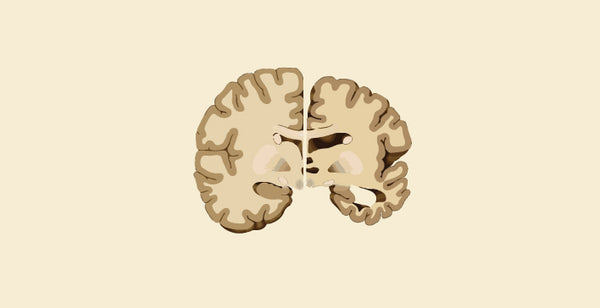HIV Dementia vs Alzheimer's: HIV Dementia and Alzheimer's are both types of dementia, however they have different origins and symptoms. HIV Dementia, a kind of dementia caused by the Human Immunodeficiency Virus (HIV) that directly affects the brain, can occur at any stage of HIV infection if left untreated. However, with the introduction of highly active antiretroviral treatment (HAART), HIV Dementia has become considerably less prevalent. Alzheimer's disease, on the other hand, is a neurodegenerative disorder with unclear aetiology. It is the most prevalent type of dementia, affecting primarily older persons, and is distinguished by a steady deterioration in cognitive ability. While HIV Dementia can cause memory loss, disorientation, behavioural abnormalities, and movement issues, these symptoms are also present in Alzheimer's. Consequently, understanding the differences between HIV Dementia vs Alzheimer's is crucial for proper diagnosis and treatment. A healthcare professional can perform a variety of tests, including neurological examinations, mental status assessments, and brain imaging scans, to help distinguish between the two conditions.
Differences Between HIV Dementia and Alzheimer
HIV Dementia and Alzheimer's disease are two distinct neurological conditions, each with its own set of characteristics and causes. Outlined below are the differences between HIV Dementia and Alzheimer's disease:
|
Aspect |
HIV Dementia |
Alzheimer's Disease |
|
Underlying Cause |
Caused by HIV infecting the brain |
Primarily genetic factors, with other contributors |
|
Age of Onset |
Typically younger adults, often with advanced HIV/AIDS |
Typically affects older individuals, usually after 65 |
|
Progression |
May progress rapidly if untreated |
Progresses slowly over many years |
|
Presence of HIV |
Always associated with HIV infection |
Not linked to HIV infection |
|
Neuropathological Changes |
Inflammation, neuronal loss, white matter abnormalities |
Beta-amyloid plaques, tau protein tangles |
|
Symptoms |
Cognitive decline, motor abnormalities, behavioral changes |
Memory loss, impaired judgment, confusion |
|
Treatment Options |
Antiretroviral therapy (ART) for HIV, potential slowing of dementia |
Symptom management, cognitive aids |
|
Prognosis |
Severity depends on HIV stage, treatment effectiveness |
Gradual decline in cognitive function, eventual severe impairment |
|
Risk Factors |
Advanced HIV, poor ART adherence, certain genetics |
Age, family history, genetics, lifestyle factors |
|
Preventive Measures |
Early HIV diagnosis, effective management |
Healthy lifestyle, mental stimulation, cardiovascular management |
Order the Best Jogger Scrub from Here!
What is HIV Dementia?
HIV dementia, also known as HIV-associated dementia complex (HAD), is a brain condition caused by HIV's damage to the neurological system. It can cause issues with memory, cognition, mobility, and behaviour. While modern treatment for HIV has made it less prevalent, it can nevertheless occur in certain people with advanced HIV.
Browse Best Scrubs Collection
Key Features of HIV Dementia:
- Caused by the Human Immunodeficiency Virus (HIV), which damages brain cells and disrupts their communication.
- Symptoms might develop over months or years.
- Memory difficulties, trouble concentrating, coordination issues, apathy, and behavioural changes are all possibilities.
- To rule out other reasons, a medical history, neurological exam, and, in certain cases, brain scans are used. There is no particular test for HIV dementia.
What is Alzheimer?
Alzheimer's disease is the most prevalent type of dementia, which affects memory, thinking, and behaviour. It's a neurodegenerative illness, which means brain cells gradually degenerate and die. Unlike HIV dementia, Alzheimer's is not caused by a virus, and the specific reason is still unknown.
Explore All Women's Scrub
Key Features of Alzheimer:
- The exact cause is unknown, however it has been related to aberrant protein accumulation in the brain. Age is the greatest risk factor.
- Symptoms usually progress slowly and gradually over time.
- Memory loss is the most common, followed by difficulty with language, logic, judgement, and carrying out everyday tasks.
- A complete assessment that includes a medical history, cognitive tests, brain scans (CT or PET), and, in certain cases, cerebrospinal fluid investigation.
Shop Best Lab Coats from Here!
Similarities Between HIV Dementia and Alzheimer
- HIV Dementia and Alzheimer Both disorders can cause considerable cognitive impairment and have an influence on everyday functioning.
- They may both result in changes in mood, behaviour, and personality.
- Both illnesses can have a significant influence on the quality of life for those affected and their carers.
- Clinical assessment, cognitive testing, and neuroimaging methods are frequently used to make a diagnosis.
- Both illnesses need constant monitoring and care to improve treatment results and quality of life.
HIV dementia and Alzheimer's disease are both types of dementia, however they have different origins. HIV Dementia is caused by the Human Immunodeficiency Virus, which directly targets the brain, causing memory loss, disorientation, and motor deterioration. Alzheimer's is a neurodegenerative disease with a less apparent origin, including protein accumulation in the brain that impairs cognitive function. While effective HIV therapy has lowered the number of instances with HIV dementia, persons living with HIV may continue to have lesser cognitive difficulties. Alzheimer's, on the other hand, typically affects elderly persons and has no known cure, although therapies can alleviate symptoms. Understanding the fundamental distinctions between HIV Dementia and Alzheimer's is critical for accurate diagnosis and treatment options.
| Check out More Articles | |
| Difference Between Cartilage And Bone | |
| Difference Between Endocrine And Exocrine Glands | |
| Difference Between Cell Wall And Cell Membrane | |















